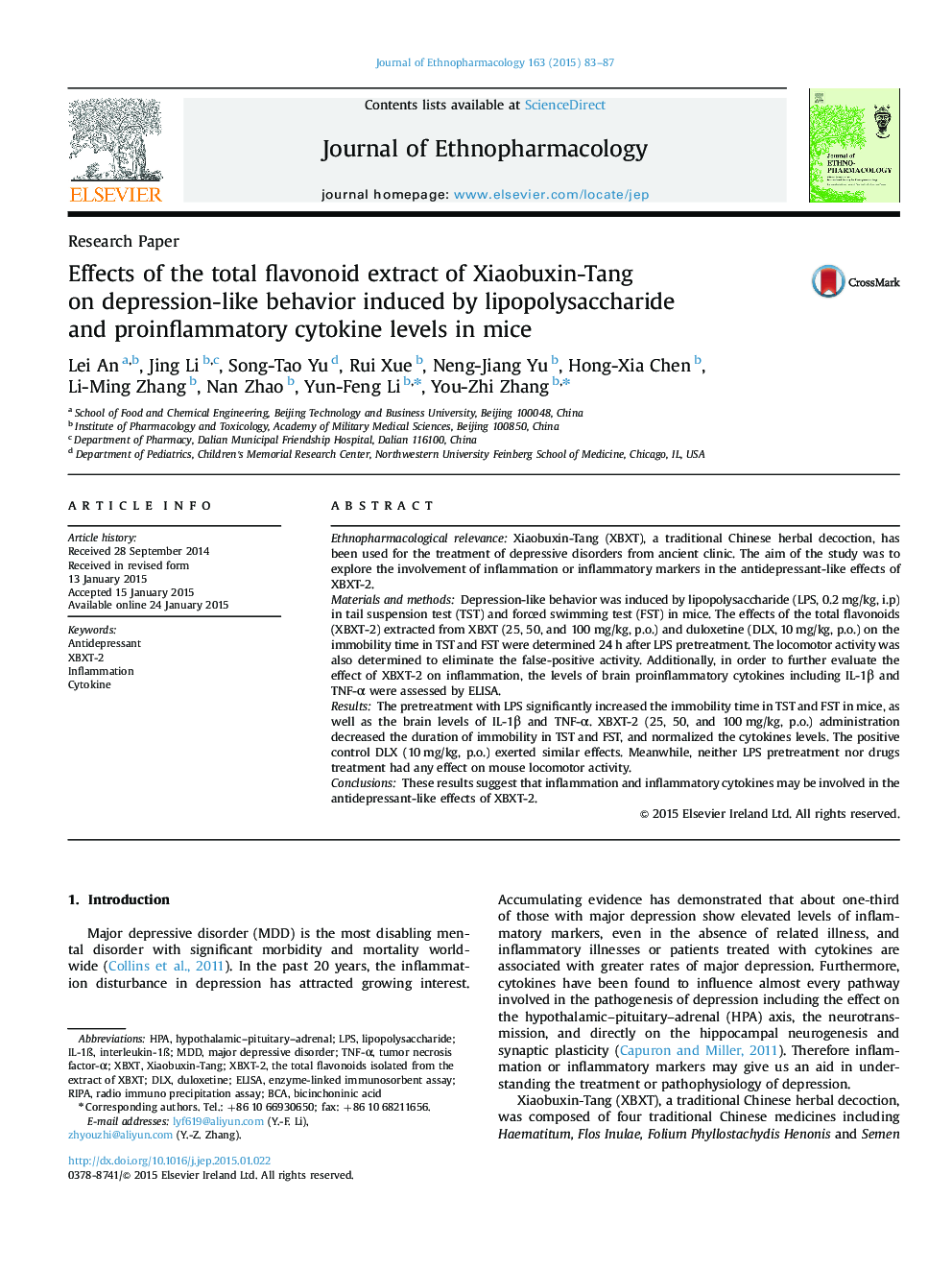| Article ID | Journal | Published Year | Pages | File Type |
|---|---|---|---|---|
| 2545020 | Journal of Ethnopharmacology | 2015 | 5 Pages |
Ethnopharmacological relevanceXiaobuxin-Tang (XBXT), a traditional Chinese herbal decoction, has been used for the treatment of depressive disorders from ancient clinic. The aim of the study was to explore the involvement of inflammation or inflammatory markers in the antidepressant-like effects of XBXT-2.Materials and methodsDepression-like behavior was induced by lipopolysaccharide (LPS, 0.2 mg/kg, i.p) in tail suspension test (TST) and forced swimming test (FST) in mice. The effects of the total flavonoids (XBXT-2) extracted from XBXT (25, 50, and 100 mg/kg, p.o.) and duloxetine (DLX, 10 mg/kg, p.o.) on the immobility time in TST and FST were determined 24 h after LPS pretreatment. The locomotor activity was also determined to eliminate the false-positive activity. Additionally, in order to further evaluate the effect of XBXT-2 on inflammation, the levels of brain proinflammatory cytokines including IL-1β and TNF-α were assessed by ELISA.ResultsThe pretreatment with LPS significantly increased the immobility time in TST and FST in mice, as well as the brain levels of IL-1β and TNF-α. XBXT-2 (25, 50, and 100 mg/kg, p.o.) administration decreased the duration of immobility in TST and FST, and normalized the cytokines levels. The positive control DLX (10 mg/kg, p.o.) exerted similar effects. Meanwhile, neither LPS pretreatment nor drugs treatment had any effect on mouse locomotor activity.ConclusionsThese results suggest that inflammation and inflammatory cytokines may be involved in the antidepressant-like effects of XBXT-2.
Graphical abstractFigure optionsDownload full-size imageDownload high-quality image (208 K)Download as PowerPoint slide
